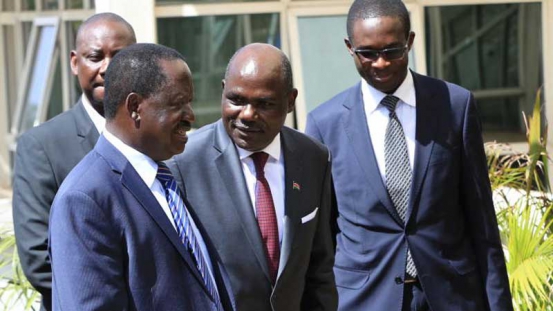×
The Standard e-Paper
Fearless, Trusted News

Following the decision made on September 1 by majority of the Supreme Court judges to nullify the August 8 presidential election, the IEBC notified the public that a fresh election will be held on October 17.
In a gazette notice, the IEBC also notified the public that there will be no nominations for candidates participating in the fresh election, and relying on the 2013 decision of the Supreme Court in Raila Odinga’s presidential petition, declared the contest will be between Uhuru Kenyatta and Raila Odinga.